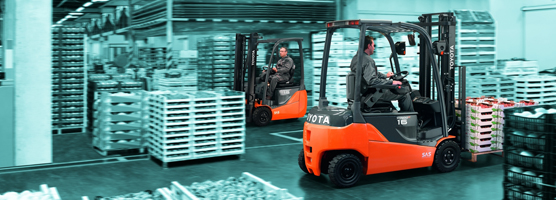KNAW grant for storage systems research by René de Koster
 <link people rene-de-koster _self>René de Koster, Professor of Logistics and Operations Management, and Professor Yugang Yu (University of Science and Technology of China - USTC), run a joint project to develop compact storage systems to address shortage of storage space around large cities like Beijing, Shanghai, and Hefei in China, as well as in the western part of the Netherlands.
<link people rene-de-koster _self>René de Koster, Professor of Logistics and Operations Management, and Professor Yugang Yu (University of Science and Technology of China - USTC), run a joint project to develop compact storage systems to address shortage of storage space around large cities like Beijing, Shanghai, and Hefei in China, as well as in the western part of the Netherlands.
The project aims to develop optimised management tools to improve the performance of such systems. Up to six times as many cars can be held in their compact car storage system compared to conventional parking systems.
They recently received a grant of € 48,000 for their joint research project from the China Exchange Programme of the Royal Dutch Academy of Science (KNAW), which stimulates scientific co-operation between China and the Netherlands.
Research objectives
The grant will help De Koster and Yu to meet two research objectives: first, to propose optimised storage polices for locating loads, which will minimise system response times in compact autonomous storage systems. And second, to propose scheduling algorithms for optimal movement of loads with minimum operational costs. As a result, say the researchers, they will acquire a better understanding of how to segment a storage area, where to store which load, when to move which loads, and how to move them individually or together between different storage areas.
Storage systems
Storage systems play an important role in manufacturing and logistics, including warehouses and distribution centres. They are also important in automated car parking systems – found particularly in the congested cities of eastern Asia – and for stacking containers at shipping terminals, for books in libraries in educational institutes, in dispensing machines for pharmaceuticals in hospitals, and so on. Such systems can be found everywhere and fill a crucial role in bringing products and services to customers.
Storage facilities also form the key nodes in supply chain networks, coupling supply with demand. They serve as main points for organising logistics in the supply chain, as well as locations for adding value to the supply chain, through postponing manufacturing, creating assortments for customers, for receiving returns, sorting and handling, and for organising transport. They are particularly important in China, the largest manufacturer and exporter in the world, and in the Netherlands, the main gateway to Western Europe.
Stimulating co-operation
<link people rene-de-koster _self>Professor De Koster: “We are very happy to have received this grant. The money will particularly be used to stimulate co-operation between the research teams in Rotterdam and at USTC. We already have some joint papers in the pipeline and this grant will make it easier to exchange ideas. In addition, we will try to involve companies in the project through co-operation with the Material Handling Forum.”


